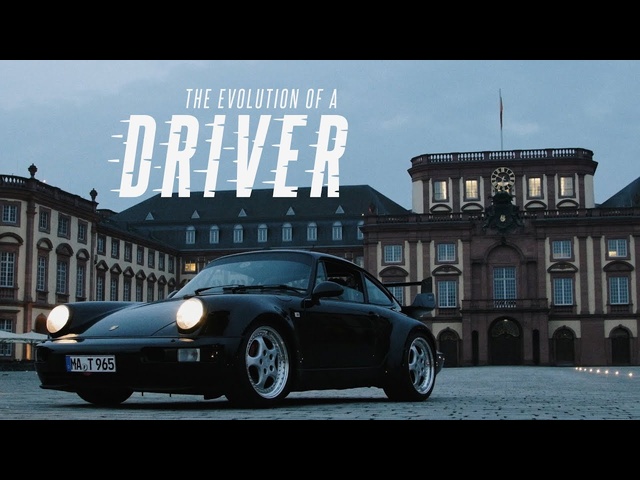Views: 119111
Homologation Specials: 1998 Mitsubishi Pajero Evolution
Japanese manufacturers found no shortage of success in the World Rally Championship (WRC) throughout the 1990s and early 2000s, with Toyota, Subaru, and Mitsubishi trading constructor titles almost exclusively amongst each other for more than a decade, in turn canonizing the Celica, Impreza, and Lancer among the sport’s all-time greats. But while Toyota and Subaru kept their rallying efforts focused on the WRC during this era, Mitsubishi also took on the greatest long-distance off-road race in the world: The Paris-Dakar.
Their weapon of choice was the Pajero. The capable but otherwise unexceptional 4WD SUV was modified to take on the mechanically and mentally grueling desert raid and made its debut in the 1983 edition. Soon after, in 1985, the Pajero took the first of the model’s 12 victories in the car category, a streak of dominance that lasted until 2007, including a six-win streak. The Pajero still stands as the winningest vehicle at the Dakar, with more class wins and more stage wins than any competitor, in any category.
For the 1997 edition of the infamously challenging raid, a changed rulebook shepherded the works teams away from prototypes and into the production-based car classes, which brings us to the road-going Pajero Evolution in this week’s film. A true homologation special, the production “PajEvo” was built in order for Mitsubishi to enter a racing version into the Dakar’s production-based T2 class. The road-going result was markedly different from any other Pajero to wear a license plate. Starting with the two-door’s ultra-short wheelbase, Mitsubishi flared the bodywork around widened front and rear tracks, added a vented, aluminum hood, and fitted a pair of fins to the rear end of the roofline.
Under the augmented skin, the PajEvo separated itself from its more civilian kin by taking on Torsen limited-slip differentials on the front and rear axles, and swapping the standard suspension for a double wishbone front end and multilink rear with extended travel. The chassis was reinforced to cope with the demands of the Dakar, and to propel the two-ton rally tank, Mitsubishi gave it a 3.5-liter V6—the 6G74—which sent 276hp and 256lb-ft of torque through an automatic five-speed (an even rarer manual version was available, but most were automatics, including the Dakar competitors).
The Pajero Evo won its debut in the 1997 event and went on to to become the most victorious Dakar machine of all time, yet its production version remains one of the lesser-known homologation specials. In this week’s film, host Sam Hancock puts one of these under-appreciated bulldogs through its paces on a mixed-surface rallycross course.
More films, articles, and photos: https://www.petrolicious.com
Petrolicious Membership: Premium films, Drive Tastefully Quarterly, events & more: https://www.petrolicious.com/membership
The best automotive gear and goods: https://www.petrolicious.com/shop
Like us on Facebook: https://www.facebook.com/petrolicious/
Follow us on Instagram: https://www.instagram.com/petrolicious/
Always Drive Tastefully®
Their weapon of choice was the Pajero. The capable but otherwise unexceptional 4WD SUV was modified to take on the mechanically and mentally grueling desert raid and made its debut in the 1983 edition. Soon after, in 1985, the Pajero took the first of the model’s 12 victories in the car category, a streak of dominance that lasted until 2007, including a six-win streak. The Pajero still stands as the winningest vehicle at the Dakar, with more class wins and more stage wins than any competitor, in any category.
For the 1997 edition of the infamously challenging raid, a changed rulebook shepherded the works teams away from prototypes and into the production-based car classes, which brings us to the road-going Pajero Evolution in this week’s film. A true homologation special, the production “PajEvo” was built in order for Mitsubishi to enter a racing version into the Dakar’s production-based T2 class. The road-going result was markedly different from any other Pajero to wear a license plate. Starting with the two-door’s ultra-short wheelbase, Mitsubishi flared the bodywork around widened front and rear tracks, added a vented, aluminum hood, and fitted a pair of fins to the rear end of the roofline.
Under the augmented skin, the PajEvo separated itself from its more civilian kin by taking on Torsen limited-slip differentials on the front and rear axles, and swapping the standard suspension for a double wishbone front end and multilink rear with extended travel. The chassis was reinforced to cope with the demands of the Dakar, and to propel the two-ton rally tank, Mitsubishi gave it a 3.5-liter V6—the 6G74—which sent 276hp and 256lb-ft of torque through an automatic five-speed (an even rarer manual version was available, but most were automatics, including the Dakar competitors).
The Pajero Evo won its debut in the 1997 event and went on to to become the most victorious Dakar machine of all time, yet its production version remains one of the lesser-known homologation specials. In this week’s film, host Sam Hancock puts one of these under-appreciated bulldogs through its paces on a mixed-surface rallycross course.
More films, articles, and photos: https://www.petrolicious.com
Petrolicious Membership: Premium films, Drive Tastefully Quarterly, events & more: https://www.petrolicious.com/membership
The best automotive gear and goods: https://www.petrolicious.com/shop
Like us on Facebook: https://www.facebook.com/petrolicious/
Follow us on Instagram: https://www.instagram.com/petrolicious/
Always Drive Tastefully®
Make: Mitsubishi Motors
More by Petrolicious
-
 Lancia Aurelia B20 Coupé: An Evolution Of Grand ...
Lancia Aurelia B20 Coupé: An Evolution Of Grand ...
 Lancia
Views: 63834
Lancia
Views: 63834 -
 Porsche 911 - A German Driving Legend in ...
Porsche 911 - A German Driving Legend in ...
 Porsche
Views: 473505
Porsche
Views: 473505 -
 This Porsche 964 Is The Evolution Of ...
This Porsche 964 Is The Evolution Of ...
 Porsche
Views: 722428
Porsche
Views: 722428 -
 1991 Venturi 260 APC: A Father And Son's ...
1991 Venturi 260 APC: A Father And Son's ...
 Venturi
Views: 95052
Venturi
Views: 95052





